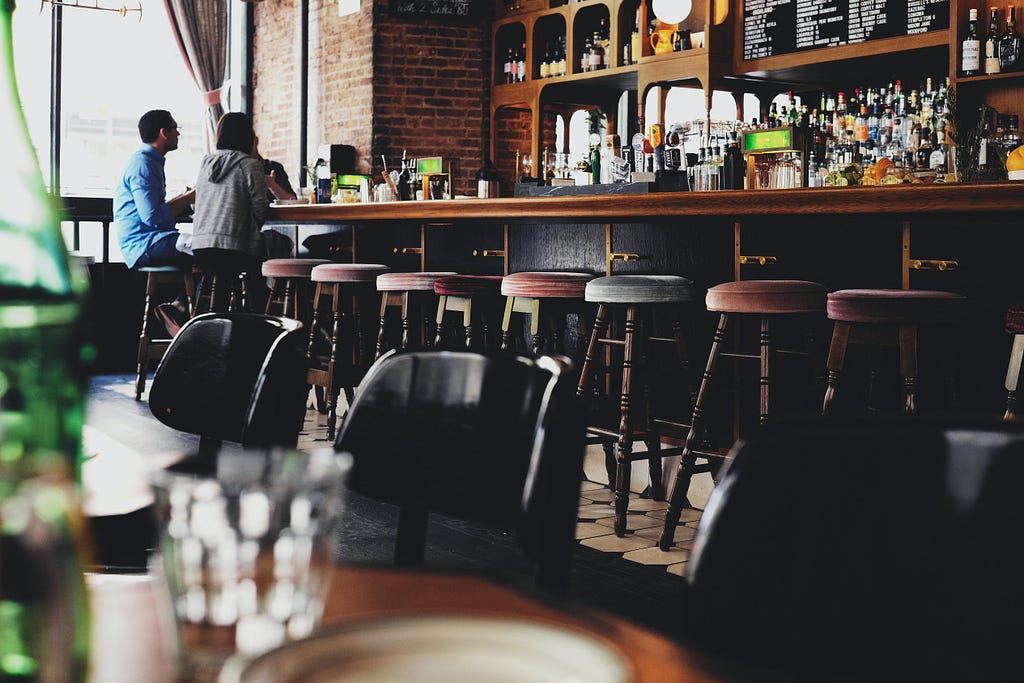A vision for how the world of food could evolve with web3. I was skeptical. I shouldn’t have been.
Last week, I had the opportunity to attend YFood’s Insights & Innovation event, which took a deep dive into rising trends in the food tech space, specifically web3 and automation. As a UX designer, I’m interested in leveraging technology to enhance the way human beings interact with the beautiful world around them and sharing those experiences with the people who matter most.
A lot of what we read about the Metaverse paints a picture of being totally immersed in a digital world, with more dystopian Black Mirror-esque visions seeing the human race living out their long yet short lives plugged into their own idea of heaven, entertained and stimulated but isolated and alone. That is not the kind of world I would like to live in. I want to help people dip in and out of digital places to have a bit of fun and collect items that make their Earthly existence richer and tastier. At the YFood event, I learned more about how to get closer to this vision.

Making food brands playable
Gaming is the closest thing we already have to an immersive Metaverse and has a user base that is always hungry to be experimented on with the latest cutting-edge innovation. Eric Londre from Karta gave an illuminating talk about how with more games shifting to an open source world-building approach like Roblox and Fortnite, it gives users more freedom to explore and even create immersive experiences themselves. But gamers aren’t the only users, businesses can build maps and create branded items within existing maps as a new touchpoint with potential customers. Even better, it’s free for brands to use.
Whilst you can’t yet taste a bowl of pad thai directly in a game (sorry Willy Wonka), food brands can use the game as a form of experiential advertising. They can create branded snacks that restore life to an injured player or a shopfront that allows players to buy branded merchandise to dress their gaming avatar. This can build pathways of association that were never possible before, allowing prospective customers to virtually experience before they buy the product in the real world.
Most gamers eat and drink whilst gaming, so building these pathways of association with your brand or even allowing gamers to order food from your real world restaurant after having just visited it in their favourite game and paying with rewards they’ve earned in the game, is a powerful customer acquisition channel that will supersede social media marketing in efficiency over the coming years.
Improving accessibility to rich experiences
As UXers, we love talking about accessibility. Metaverse experiences eliminate the barrier of travel. When the tech improves to a level that is truly immersive and barely distinguishable from the real world, someone living in the UK could go to a Metaverse restaurant with a friend who has moved to Hawaii whilst eating the same dish they’ve both just made at home. You could then move the night on to a bar or a club in the Metaverse and forget that your dance partner for the evening is wheelchair-bound. These experiences also will be cheaper than in-person and available on-demand. Of course, these spaces will need to be diligently policed against potential Tinder Swindlers but the lack of geographic dependance and mobility could make vast improvements to the quality of life of so many.
The experience of food goes beyond the sensations we get from consuming a delicious meal, the event of meeting for dinner and breaking bread with others is a great leveller. Food brings together families, old friends and strangers for nights that live on in memory long after. Making these special occasions more easily accessible can help us feel more connected to the people we care for dearly but meet infrequently due to time and distance, a need which all of us can empathise with more than ever since the enforced covid-19 lockdowns we all experienced.
Another fascinating talk at the YFood event was given by Sebastian Lyall (Founder of Lollipop), discussing the Metaverse, web3 and their applications to food experiences. He talked about the very real world problem of making a table booking at a restaurant without being able to pick exactly where in the restaurant you would like to sit. This can also cause problems for the restaurant when guests arrive and are unhappy with their seat, insisting on moving. So the Metaverse solution from companies like Tablz is to give customers access to a virtual environment of the restaurant to pick exactly where they would like to sit in the restaurant, the view they would like etc. — all at the reservation stage. Exciting stuff!

Food as an expense ⇒ food experiences as an asset
This paradigm shift might change everything in the restaurant business. Many famous Renaissance artists who we all know today like Leonardo da Vinci were supported by wealthy patrons, much like you can do with Patreon today where you pay a regular membership subscription because you are a fan of an individual’s content and want to see them succeed, as well as receive Patreon-only perks every now and then. Now imagine that this membership is a tradable token that could go up in value as the individual you are supporting becomes more popular and these scarce memberships grow in demand. You could then sell the membership token for more than you initially paid and make a profit. I am of course, talking about NFTs.
Apply this membership model to the restaurant world and supper clubs like Six by Nico, and eating out is no longer an absolute negative mark against your bank balance but could give value back to you as well.
The tradability of these membership NFTs is one important aspect but so is the democratic ownership that it imparts. If a chef sets up a decentralised autonomous organisation (DAO), members not only receive compensation in the form of NFTs but can contribute to decisions like menu planning or proposed renovations to the restaurant.
It is important to acknowledge that values can also go down as well as up, so before getting involved in a membership like this, one should understand the business and get involved for the love of the chef’s work and wanting to support that, not with the single goal of making a profit from selling.

Other cool products showcased at YFood included:
Hyper Robotics: Automating fast food with a robot store. They started in Israel working with Pizza Hut, creating a human-less takeaway restaurant. I usually support bringing as much real human interaction and soul to restaurants as possible but in the case of working at a fast food restaurant, there is little creativity required by the employees and it feels very machine-like already. Using automation makes for even more accuracy and consistency across items produced and Hyper Robotics’ Pizza Hut store allows for more transparency because customers can peer in through windows to see their pizza being prepared at each stage, making for a more enjoyable, experience-driven, user-centric service. Check out the video here.
Ckbk: Think Spotify for cookbooks. They take classic Cordon Bleu cookbooks as well as new authors with the latest diets and provide it all for a monthly subscription across multiple devices. The core benefit I saw here was the searchability and discoverability that this offers users, rather than having to go through the indexes of multiple books looking for meal inspiration each week and providing a high quality range of books.
Caulibox: A reusable food container service that provides to canteens and street food stalls, then collects, cleans and redistributes them, tackling food container waste. A very noble and worthwhile enterprise!
Rassa: Online cooking courses from world-class chefs in some lesser-known cuisines, including insight into the culture and crucially offering direct interaction with the teaching chef for feedback and questions. They also send students specific cooking tools and elusive ingredients, which I think is fantastic because the effort that takes for an individual to acquire these themselves often prevents people from pursuing the cuisine further.
All in all, it was an enlightening and inspiring event. Looking forward to the next one!
Are we going to need food in the Metaverse? was originally published in UX Collective on Medium, where people are continuing the conversation by highlighting and responding to this story.